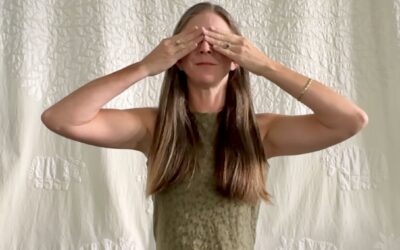The quest for perfection can feel like an endless, exhausting pursuit in a world obsessed with flawless ideals and unattainable standards. We constantly strive to meet expectations, whether set by society, our peers, or, more often than not, by our demanding inner voice. It’s a relentless battle that leaves us feeling drained and disconnected.
I’ve struggled with perfectionism for most of my life. Even going back to my school years, anything other than an A+ seemed to crush my soul, and I would waste precious hours beating myself up over any perceived failures or weaknesses.
As a Christian, I’ve known that I wasn’t perfect. I would have times of weakness, failure, and battles with sin would come my way. That my imperfections and weaknesses were not just for my good but so that God might be glorified even more. Cognitively, I understood that, but my heart always seemed to trail behind.
Despite knowing these truths, I sought perfection whenever possible and held myself up to outrageous standards. It wasn’t until I started the practice of yoga that these truths sank in and took hold in my heart. The embodied practice of yoga bolstered my faith in Jesus. It allowed me to embrace my imperfections, liberate myself from the shackles of perfectionism, and experience life in its beautifully messy, unfiltered glory.
I realized the key was not achieving perfection but embracing imperfection wholeheartedly.
The Myth of Perfection
Perfectionism is a relentless storm that brews within. It’s a pervasive mindset that convinces us that happiness and fulfillment lie on the other side of flawlessness.
We’re bombarded with images of airbrushed models, meticulously curated social media feeds, and success stories that seem too good to be true. The world tells us we must be flawless in our appearance, relationships, careers, and every aspect of our lives. It’s an unattainable quest that leads to stress, anxiety, and a never-ending cycle of disappointment.
Falls, Fumbles, and Sanctification
The yoga mat is a space free from judgment and comparison. It’s where wobbles and falls not only happen but they are expected. One day, I might seamlessly step into a Birds of Paradise Pose, and the next day, end up stumbling and unable to lift my foot off the floor. The practice is a powerful reminder that perfect isn’t attainable and that imperfection is part of being human.
The practice is a powerful reminder that perfect isn’t attainable and that imperfection is part of being human.
Yoga is not about achieving the perfect pose; it’s about embracing the journey and acknowledging that growth happens in the process, not at the destination. On the mat, I played with my capabilities and limitations and finally learned to speak kindly to myself. Instead of harsh judgment when I fell or stumbled, I could smile and start again.
The trials on my yoga mat remind me of sanctification, an ongoing transformation of our hearts and lives. Sanctification is a process of being set apart or made holy. It’s a continual process filled with ups and downs, victories and setbacks, breakthroughs and battles with sin.
Sanctification doesn’t occur because we work hard enough to finally achieve perfection; it’s only gained through God’s grace.
Sanctification doesn’t occur because we work hard enough to finally achieve perfection; it’s only gained through God’s grace. The pressure to be perfect diminishes as we recognize that life is a continuous process of becoming. Each step, each stumble, becomes a part of our unique story—a story shaped by grace.
The Healing Power of Vulnerability
Moving through poses on my mat helped me to recognize that strength is found in vulnerability. The vulnerability expressed in yoga poses, the vulnerability of opening oneself to God’s grace, the vulnerability of admitting that we aren’t and can never be perfect on our own.
Acknowledging my imperfections doesn’t diminish my worth but allows for a deeper connection to and dependence on God. As I move on my yoga mat, I’m allowed to surrender perfectionism at the feet of divine grace, and the physical movements and poses help me move this knowledge from my head to my heart.
Acknowledging my imperfections doesn’t diminish my worth but allows for a deeper connection to and dependence on God.
Perfectionism often goes hand in hand with self-criticism. We berate ourselves for not meeting our unrealistic standards, creating a cycle of negativity that erodes our self-esteem and values. Yoga invites us to break free from this cycle and allows us to feel and experience that we are fearfully and wonderfully made (Psalms 139:14-16).
In the teachings of Jesus, there is a profound paradox—strength found in weakness (2 Corinthians 12). It’s a concept that challenges the world’s definition of strength as perfection and self-sufficiency. Through faith, we learn that acknowledging our weaknesses is not a sign of failure but an opportunity for divine strength to manifest. It’s an invitation to let go of the facade of perfection and embrace vulnerability, knowing that in our weakness, His strength is made perfect.
Mindfulness and the Art of Being Present
Perfectionism often arises from fixating on past mistakes or worrying about the future. Yoga grounds us in the present moment. Each inhalation, exhalation, movement, and sensation becomes an opportunity to be fully present. In the stillness of the present, the illusion of perfection fades away.
In a culture that thrives on comparison and competition, faith in Jesus Christ invites us to lay down the heavy baggage of unrealistic expectations. The teachings of Jesus emphasize love, compassion, and forgiveness—values that starkly contrast to the harsh judgments we often place on ourselves. It’s a call to release the burden of perfection.
Surrendering Control
Perfectionism often stems from a need to control every aspect of our lives. Faith in Jesus Christ calls us to surrender this need for control and trust in Him. It’s an acknowledgment that there is a divine plan beyond our understanding. And that even when things are hard and don’t make sense, we can rest assured that, in the end, all things will work together for good and for God’s purpose (Romans 8:28).
The practice of yoga helped me to let go of control and expectations of perfectionism. To understand that even when every step has seemed right up to a certain point, sometimes we still fall or can’t do a pose. The physical practice of releasing control and expectations took root in my heart. And I finally realized that once I let go of the reins, I could find peace knowing that I am held in the hands of a loving Creator.
Closing Thoughts
Faith in Jesus Christ allows us to release the shackles of perfectionism and walk in the light of love. In the teachings of Jesus, there is a promise of abundant life. This abundance is not measured by external markers of success or perfection as the world might define abundance but by the richness of our relationship with God.
As you spend time on your mat, allow the movements and breath to fill you with grace, be honest about your imperfections, and lean on the only one who is perfect. Through our brokenness, we are made whole and loved beyond measure.





0 Comments